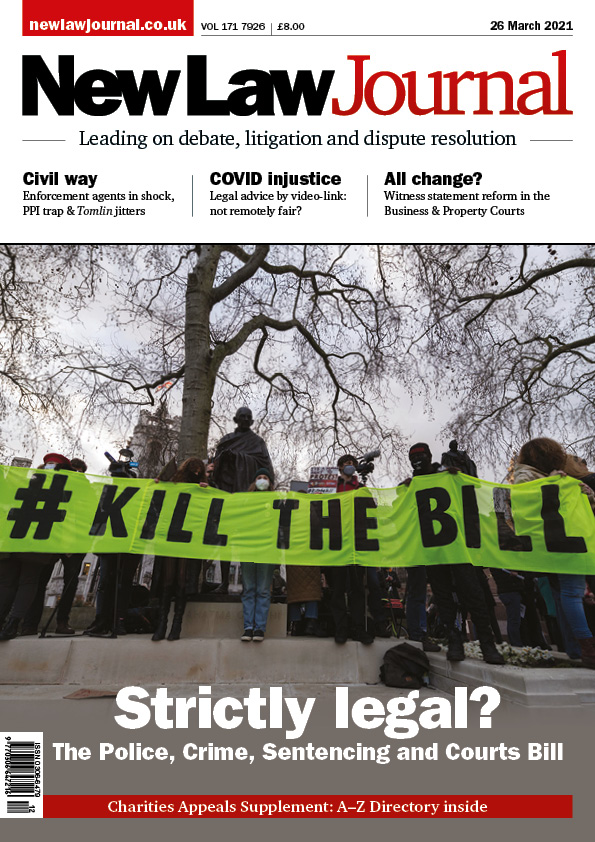THIS ISSUE

Lawyers have urged caution on proposals to reform judicial review, following the publication of former Conservative minister Lord Faulks QC’s 195-page report
The number of solicitors needing support has tripled since the start of the pandemic with a ‘significant shift’ in the profile of solicitors helped, according to the Solicitors’ Charity (formerly known as the Solicitors’ Benevolent Fund)
The Law Society of Ireland reopened its doors this week to solicitors from England and Wales who want to requalify in Ireland without having to sit exams
MOVERS & SHAKERS

Freeths—Ruth Clare
National real estate team bolstered by partner hire in Manchester

Farrer & Co—Claire Gordon
Partner appointed head of family team

mfg Solicitors—Neil Harrison
Firm strengthens agriculture and rural affairs team with partner return
NEWS
Conveyancing lawyers have enjoyed a rapid win after campaigning against UK Finance’s decision to charge for access to the Mortgage Lenders’ Handbook
The Crown Prosecution Service (CPS) has launched a recruitment drive for talented early career and more senior barristers and solicitors
Regulators differed in the clarity and consistency of their post-Mazur advice and guidance, according to an interim report by the Legal Services Board (LSB)
The dangers of uncritical artificial intelligence (AI) use in legal practice are no longer hypothetical. In this week's NLJ, Dr Charanjit Singh of Holborn Chambers examines cases where lawyers relied on ‘hallucinated’ citations — entirely fictitious authorities generated by AI tools
The Solicitors Act 1974 may still underpin legal regulation, but its age is increasingly showing. Writing in NLJ this week, Victoria Morrison-Hughes of the Association of Costs Lawyers argues that the Act is ‘out of step with modern consumer law’ and actively deters fairness






